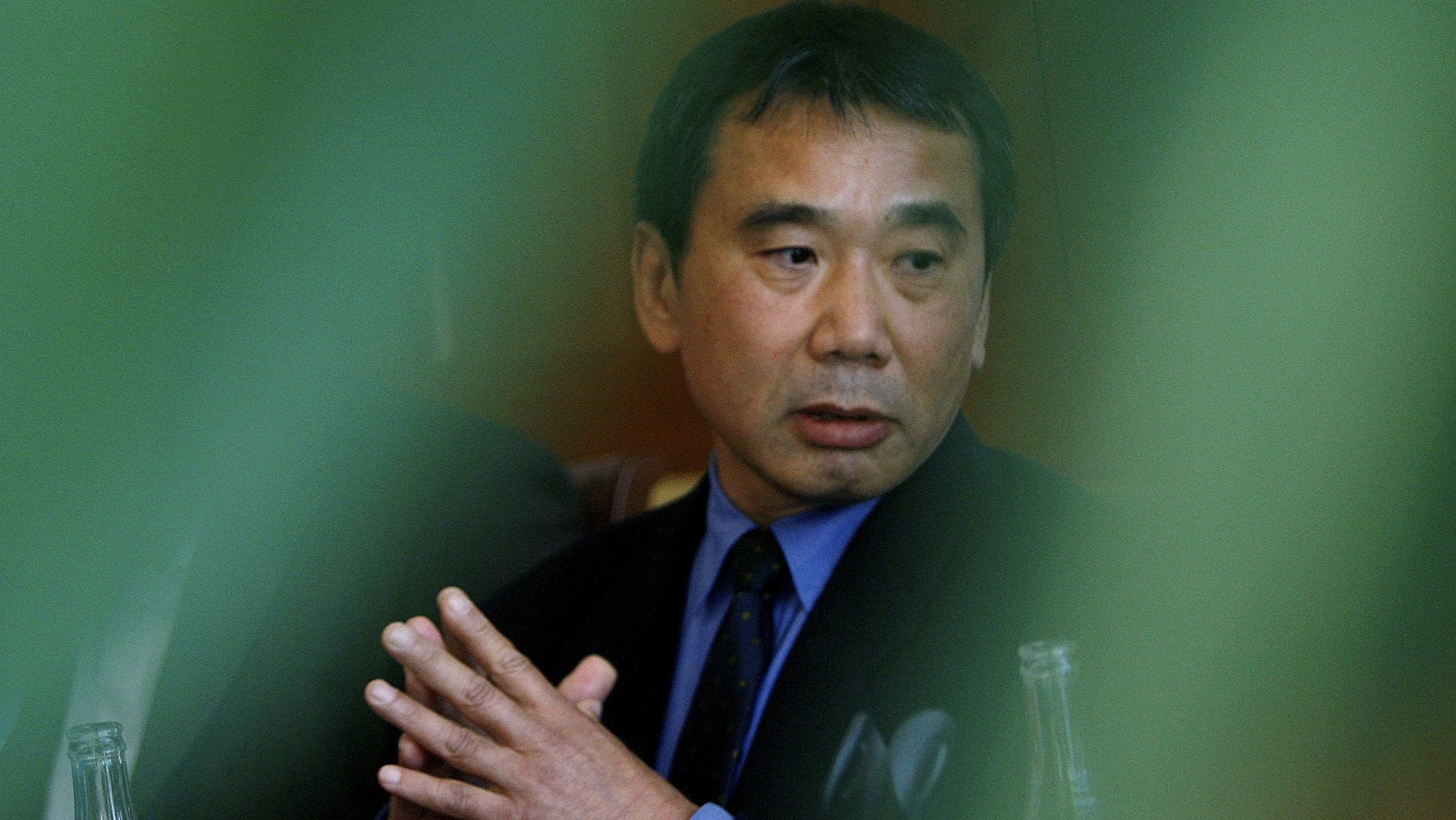Haruki Murakami will take your questions on cats, jazz, and the Nobel Prize
Haruki Murakami, Japan’s most successful living novelist, is trying his hand at a new kind of writing. The best-selling writer, whose latest book sold a million copies in its first week, will take e-mailed questions from readers starting on Jan. 15 and answer them over the next two months on a new website called “Mr. Murakami’s Place.” While his new venture is often described as an “online agony uncle,” Murakami will field “questions of any kind,” said a spokesman for his publisher, Shinchosa.


Haruki Murakami, Japan’s most successful living novelist, is trying his hand at a new kind of writing. The best-selling writer, whose latest book sold a million copies in its first week, will take e-mailed questions from readers starting on Jan. 15 and answer them over the next two months on a new website called “Mr. Murakami’s Place.” While his new venture is often described as an “online agony uncle,” Murakami will field “questions of any kind,” said a spokesman for his publisher, Shinchosa.
Popular authors—even those like Murakami who travel to “very deep, dark and lonely” places to write—have been stepping up their engagement with their online fans in recent years, whether for Reddit Q&As (Stephen King) or free online writing classes (Susan Orlean). But actual writers-turned-advice columnists have been rare. (Two standouts: Garrison Keillor’s stint as a Salon columnist, and Chuck Klosterman’s “Ethicist” column for the New York Times Magazine.)
Murakami’s fans are already a devout bunch, known as “Harukists” who often share his love of cats, line up for hours to be the first to buy his books, have tracked down the location of jazz club he used to own, and prepared (in vain) a champagne toast before this year’s Nobel Prize for literature, which he has never received. While Murakami rarely gives interviews in Japan, he has already doled out plenty of advice to readers in English-language publications, including this on writing in The New York Times (paywall):
Whether in music or in fiction, the most basic thing is rhythm. Your style needs to have good, natural, steady rhythm, or people won’t keep reading your work. I learned the importance of rhythm from music — and mainly from jazz.
Murakami famously took up running when he started writing, with a goal of 60 kilometers (37 miles) a week, and he ran a marathon a year for many years before embarking on triathlons. His non-fiction memoir, “What I Talk About When I Talk About Running” is full of advice for the would-be writer, runner or athlete:
Through experience you learn how to compensate for your physical shortcomings. To put it another way, learning from experience is what makes the triathlon so much fun…Whether its good for anything or not, cool or totally uncool, in the final analysis what’s most important is what you can’t see but can feel in your heart. To be able to grasp something of value, sometimes you have to perform seemingly inefficient acts.
Murakami told the Paris Review he consciously writes accessible prose because he wanted his books to achieve commercial success, but fans shouldn’t expect much advice on making a living as a writer: Murakami has “no idea” how much he makes, and his wife and accountant take care of the financial details.
If you can’t wait until January 15, there numerous areas to get a Murakami fix, including several (unofficial) Twitter accounts that dispense direct quotes from his novels on a regular basis: